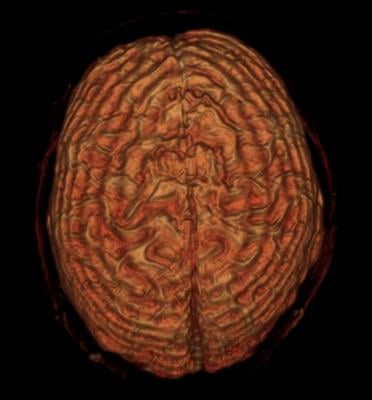
January 2, 2013 — Magnetic resonance imaging (MRI) shows changes in the brains of people with post-concussion syndrome (PCS), according to a new clinical study published online in the journal Radiology. Researchers hope the results point the way to improved detection and treatment for the disorder.
PCS affects approximately 20 to 30 percent of people who suffer mild traumatic brain injury (MTBI) — defined by the World Health Organization as a traumatic event causing brief loss of consciousness and/or transient memory dysfunction or disorientation. Symptoms of PCS include headache, poor concentration and memory difficulty. Conventional neuroimaging cannot distinguish which MTBI patients will develop PCS.
“Conventional imaging with CT or MRI is pretty much normal in MTBI patients, even though some go on to develop symptoms, including severe cognitive problems,” said Yulin Ge, M.D., associate professor, Department of Radiology at the NYU School of Medicine in New York City. “We want to try to better understand why and how these symptoms arise.”
Ge’s study used MRI to look at the brain during its resting state, or the state when it is not engaged in a specific task, such as when the mind wanders or while daydreaming. The resting state is thought to involve connections among a number of regions, with the default mode network (DMN) playing a particularly important role.
“Baseline DMN is very important for information processing and maintenance,” Ge said.
Alterations in DMN have been found in several psychiatric disorders, including Alzheimer’s disease, autism and schizophrenia, but little is known about DMN connectivity changes in MTBI.
For the new study, Ge and colleagues used resting-state functional MRI to compare 23 MTBI patients who had post-traumatic symptoms within two months of the injury and 18 age-matched healthy controls. Resting state MRI detects distinct changes in baseline oxygen level fluctuations associated with brain functional networks between patients with MTBI and control patients.
The MRI results showed that communication and information integration in the brain were disrupted among key DMN structures after mild head injury, and that the brain tapped into different neural resources to compensate for the impaired function.
“We found decreased functional connectivity in the posterior network of the brain and increased connectivity in the anterior component, probably due to functional compensation in patients with PCS,” Ge said. “The reduced posterior connectivity correlated positively with neurocognitive dysfunction.”
Ge and the other researchers hope to recruit additional MTBI patients for further studies with an eye toward developing a biomarker to monitor disease progression and recovery as well as treatment effects.
“We want to do studies to look at the changes in the network over time and correlate these functional changes with structural changes in the brain,” he said. “This could give us hints on treatments to bring back cognitive function.”
“Default-Mode Network Disruption in Mild Traumatic Brain Injury.” Collaborating with Ge were Yongxia Zhou, Ph.D., Michael P. Milham, M.D., Ph.D., Yvonne W. Lui, M.D., Laura Miles, Ph.D., Joseph Reaume, B.S.R.T., Daniel K. Sodickson, M.D., Ph.D., and Robert I. Grossman, M.D.
For more information: RadiologyInfo.org


 February 13, 2026
February 13, 2026 









